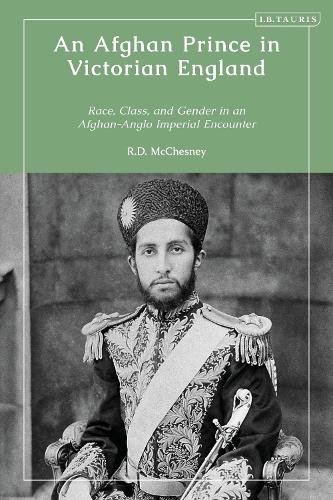
An Afghan Prince in Victorian England: Race, Class, and Gender in an Afghan-Anglo Imperial Encounter
(Hardback)
Available Formats
Publishing Details
An Afghan Prince in Victorian England: Race, Class, and Gender in an Afghan-Anglo Imperial Encounter
By (Author) R.D. McChesney
Bloomsbury Publishing PLC
I.B. Tauris
22nd August 2024
United Kingdom
Classifications
Professional and Scholarly
Non Fiction
Middle Eastern history
327.41058109034
Physical Properties
Hardback
440
Width 154mm, Height 236mm, Spine 30mm
800g
Description
In 1894 Great Britain invited Abd al-Rahman Khan, the amir of Afghanistan, to England for a state visit. Then at the height of its imperial might, Britain sought to strengthen ties with the strategically important Afghanistan, which shared a long frontier, not yet a border, with British India. The amirs aim for the visit was to secure permission for an Afghan legation (embassy) in London while the British, unaware of this goal, hoped to overawe the amir with displays of military and industrial might as well as performances to show the strength and unity of British civil society. The amir, citing illness, ultimately declined the invitation but, in a calculated snub, sent his second son, Prince Nasr Allah Khan, in his place. This book narrates the events of the princes mission in a number of revealing ways. Using both British and Afghan sources, including the journal of a senior member of the Afghan contingent, McChesney places the visit in its international and historical context and analyzes the internal dynamics of the princes delegation, the seventy members of whom represented Afghanistan but included two Englishmen and two Englishwomen. A further twenty members, representing the Government of (British) India, were as multi-ethnic and multilingual as the members of the Afghan delegation. This bilateral and complex mission left India in April 1895 and remained together for the next six months. From the beginning it was riven by incidents of misogyny, racism, and class conflict that affected its ability to perform its diplomatic functions. The reader gains insights into the goals and tactics of two asymmetrical yet competing powers as well as a rare look at the human element in this cross-cultural diplomatic encounter.
Author Bio
Robert D. McChesney is Professor Emeritus at New York University, USA. He is the author of numerous articles, books and encyclopaedia entries on the social and cultural history of Central Asia, Iran, and Afghanistan, including Waqf in Central Asia: Four Hundred Years in the History of a Muslim Shrine, 1480-1889 (1991).
